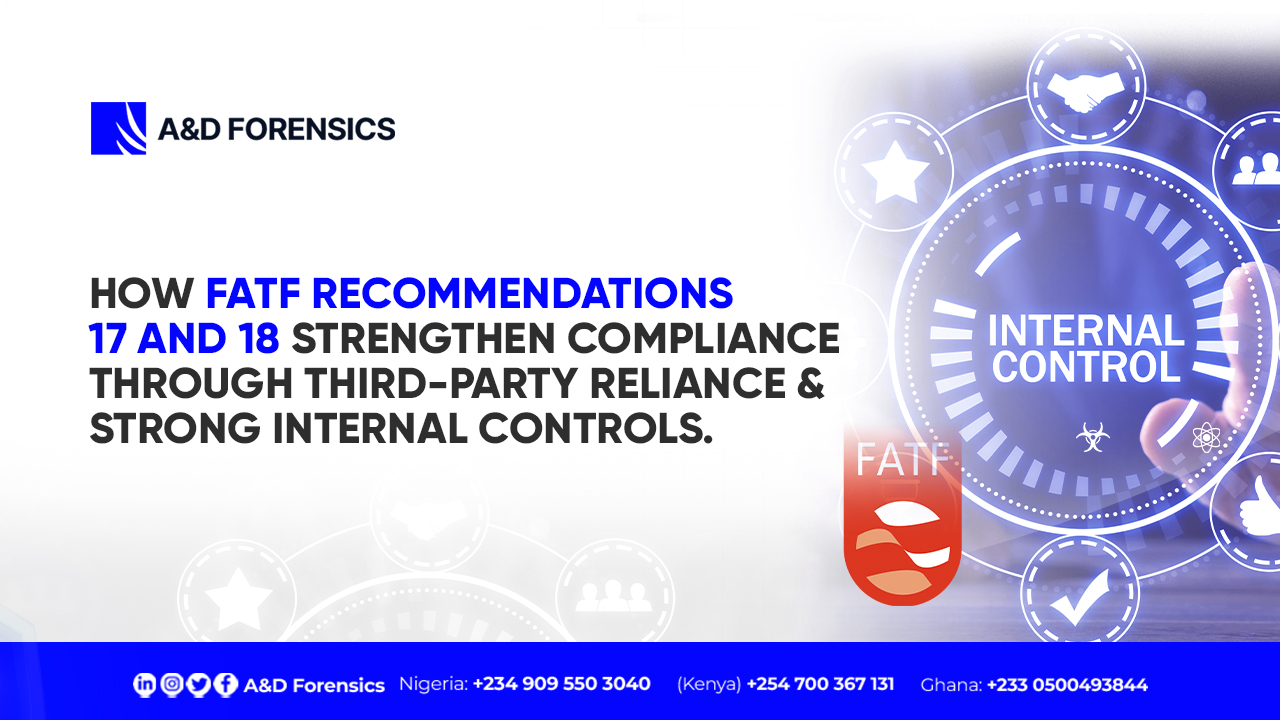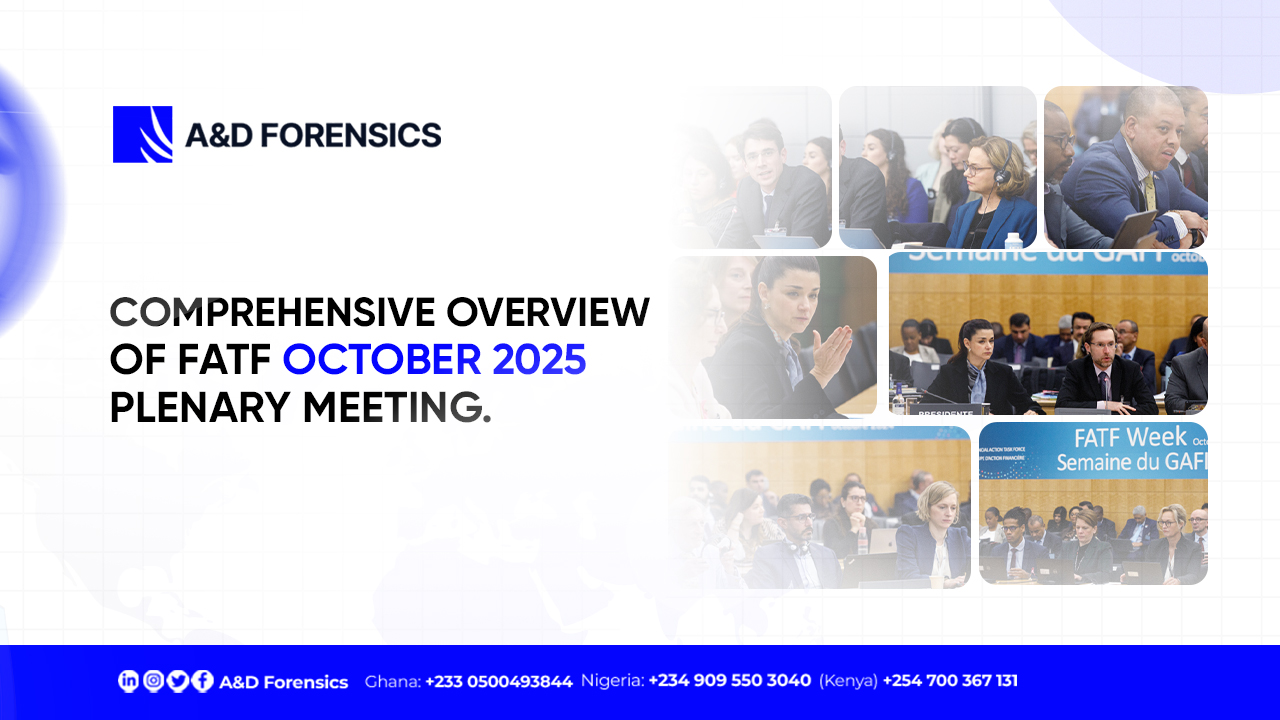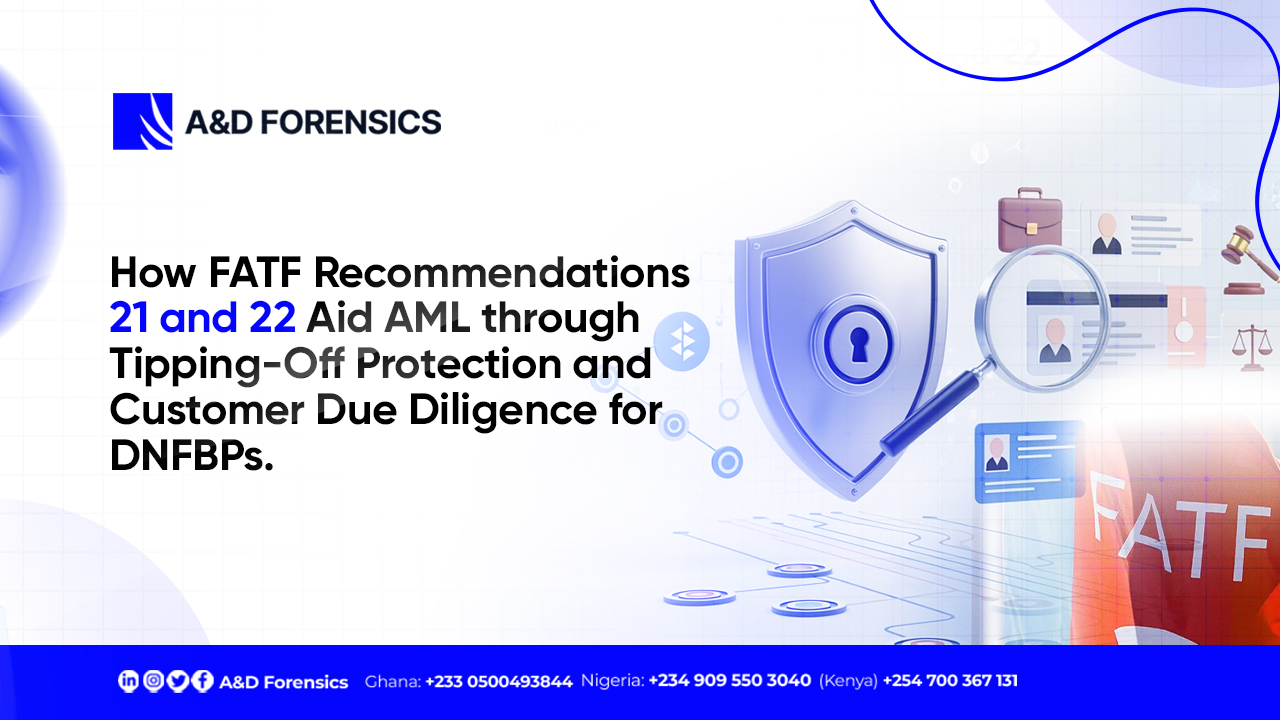FATF Recommendation 17 and FATF Recommendation 18 are central to strengthening global AML/CFT compliance frameworks by ensuring both effective third-party reliance and robust internal controls. As financial institutions expand across borders and adopt new technologies, the risks of money laundering, terrorist financing, and regulatory breaches continue to increase. In response, the Financial Action Task Force (FATF) introduced these recommendations to balance efficiency with accountability in compliance practices.
FATF Recommendation 17 permits reliance on trusted third parties for customer due diligence, while Recommendation 18 ensures strong group-wide compliance through policies, audits, training, and information sharing. Together, FATF Recommendation 17 and FATF Recommendation 18 are shaping how financial institutions manage compliance globally enabling operational scalability through reliance while safeguarding accountability and oversight.
Understanding FATF Recommendation 17: Third-Party Reliance.
FATF Recommendation 17 allows financial institutions to rely on third parties, such as other regulated entities, to carry out certain elements of Customer Due Diligence (CDD) on their behalf. This includes:
- Identifying and verifying a customer’s identity
- Verifying beneficial ownership information
- Determining the purpose and intended nature of the business relationship
However, this third-parties reliance is only permitted if:
- The institution can immediately access the full CDD records and supporting documents.
- The third party is subject to regulation, supervision, and compliance with FATF Recommendation (or stricter local requirements).
- The institution itself retains full responsibility and accountability for compliance, meaning reliance does not transfer liability.
How FATF Recommendation 17 Aids Anti-Money Laundering (AML).
- Enables reliance on regulated third parties for CDD: Institutions can use trusted, supervised partners to carry out CDD checks, making onboarding faster and more efficient.
- Ensures quick access to full customer records: Even when relying on others, institutions must have immediate access to documents and data, ensuring transparency and audit readiness.
- Extends compliance reach across markets: Third-party reliance helps institutions operate in new regions without compromising AML standards, as long as partners meet FATF Recommendation 17
- Saves resources while maintaining oversight: Outsourcing CDD tasks reduces workload and costs, but accountability still rests with the relying institution.
- Keeps institutions accountable for AML obligations: FATF Recommendation 17 makes it clear that reliance does not shift liability, institutions remain responsible for compliance failures.
Understanding FATF Recommendation 18: Strong Internal Controls.
FATF Recommendation 18 requires financial institutions and other obligated entities to implement a group-wide program of AML/CFT measures, supported by strong internal controls. This means establishing a consistent compliance framework across all branches, subsidiaries, and operations, regardless of jurisdiction.
At its core, FATF Recommendation 18 requires:
- Documented internal policies, procedures, and controls to detect and prevent money laundering and terrorist financing.
- An independent audit function to regularly test and verify the effectiveness of the compliance program.
- Ongoing training that equips staff with practical, role-specific AML/CFT knowledge.
- Information-sharing mechanisms that enable branches and subsidiaries to exchange risk data, customer information, and red flag alerts securely.
How FATF Recommendation 18 Aids Anti-Money Laundering (AML).
- Strengthens group-wide AML programs: FATF Recommendation 18 Requires financial groups to establish consistent compliance policies across all branches and subsidiaries.
- Mandates independent audits: Regular, impartial reviews ensure AML systems are effective and weaknesses are quickly addressed.
- Promotes staff training: Employees at all levels must be equipped to detect and prevent money laundering and terrorist financing.
- Improves information sharing within groups: Branches and subsidiaries must exchange relevant customer and transaction data, enhancing monitoring across borders.
- Enhances accountability at the group level: Headquarters remain responsible for ensuring subsidiaries follow AML standards, maintaining global compliance integrity.
5 key impacts of FATF Recommendation 17 (Third-Party Reliance) and FATF Recommendation 18 (Strong Internal Controls).
- FATF Recommendation 17 allows financial institutions to rely on third parties to perform elements of customer due diligence, provided they remain fully accountable.
- This reliance reduces duplication of work, improves efficiency, and streamlines compliance processes.
- FATF Recommendation 18 emphasizes strong internal controls across financial groups, requiring clear policies, independent audits, and regular staff training.
- It enforces effective information sharing between branches and subsidiaries, ensuring consistent global standards.
- Together, FATF Recommendation 17 and FATF Recommendation 18 strengthen AML frameworks by balancing reliance on trusted partners with robust internal oversight.
5 Implementation Challenges of FATF Recommendation 17 (Third-Party Reliance) and FATF Recommendation 18 (Strong Internal Controls).
- Ensuring that third parties are trustworthy and meet the same AML/CFT standards as the relying institution.
- Balancing reliance on external parties with the institution’s ultimate accountability for customer due diligence.
- Overcoming data privacy and legal barriers that limit effective information sharing across branches and subsidiaries.
- Maintaining consistency in compliance programs across diverse jurisdictions with varying regulatory requirements.
- Allocating sufficient resources for independent audits, staff training, and monitoring to keep controls effective.
Conclusion.
FATF Recommendation 17 and FATF Recommendation 18 work hand in hand to strengthen global AML/CFT compliance by promoting both trusted third-party reliance and robust internal controls. FATF Recommendation 17 enables efficiency through reliance on regulated partners for customer due diligence, while ensuring accountability remains with the institution. FATF Recommendation 18 reinforces this by requiring group-wide policies, audits, training, and information sharing to maintain consistency and oversight across all operations. Despite challenges such as regulatory differences, data privacy barriers, and resource demands, these recommendations strike a balance between operational scalability and strong governance.
Explore FATF Recommendation 1 to 14 in our previous blog:
- FATF Recommendation 1 and 2
- FATF Recommendation 3 and 4
- FATF Recommendation 5 and 6
- FATF Recommendation 7 and 8
- FATF Recommendation 9 and 10
- FATF Recommendation 11 and 12
- FATF Recommendation 13 and 14
- FATF Recommendation 15 and 16
Contributor: Ibrahim Anuoluwapo Azeez






